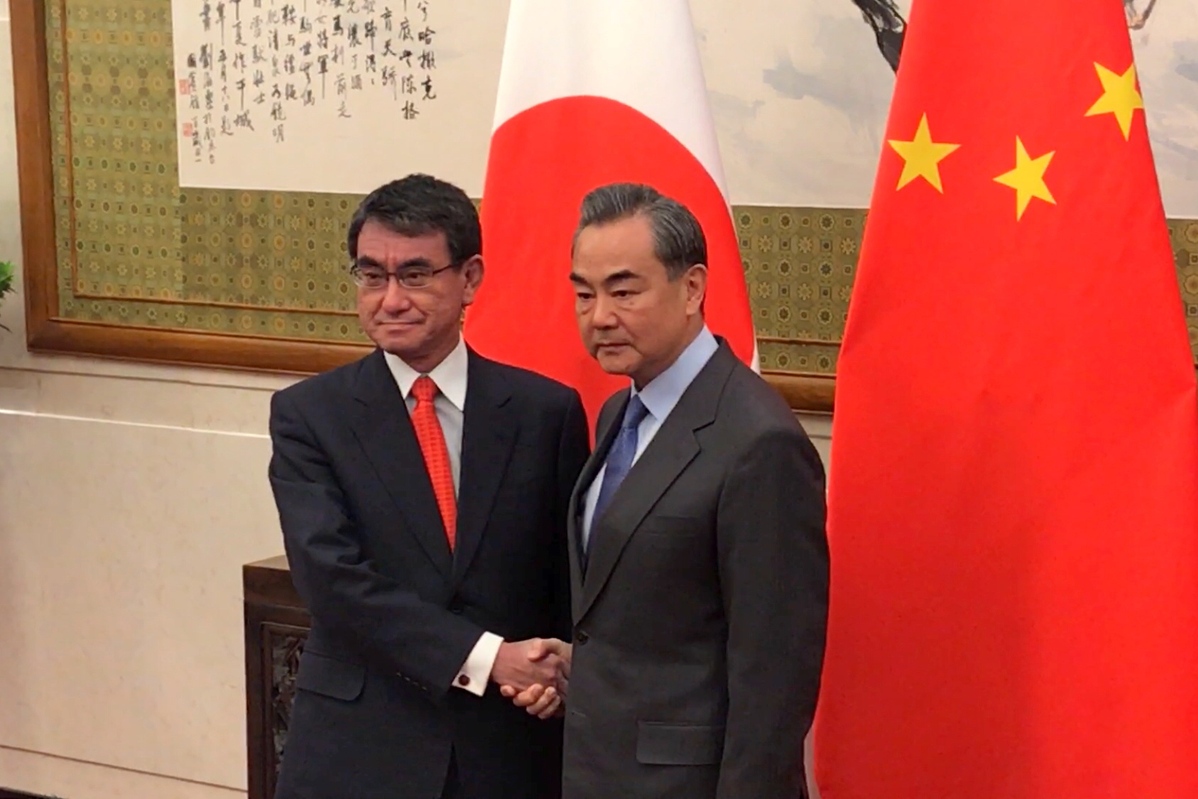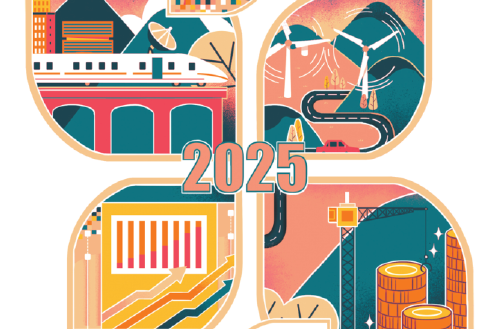Japan must make concrete moves to improve relations


As Foreign Minister Wang Yi said during a meeting with his Japanese counterpart on Sunday, ties between China and Japan are like a boat trying to make its way against the current, and the two countries need to overcome the turbulence and obstacles that stand in their way if they are to make any progress in improving their relations.
Certainly both sides have made a series of goodwill gestures recently indicating they would like to try and ameliorate relations, with Japanese Foreign Minister Taro Kono’s ongoing visit to China the latest of these. And coming so early in the year, his visit has been welcomed by China as a continuation of Japanese Prime Minister Shinzo Abe’s stated willingness to engage with Beijing and increase communication and mutual trust.
Although there has been some resuscitation of engagement, including high-level contact at various international platforms and the resumption of dialogue and consultation in some areas, so far the momentum has not been strong enough to restore the vitality of ties attained before the Japanese government “nationalized” the Diaoyu Islands in 2012, an act that put an abrupt brake on the positive momentum that had been carefully cultivated.
Without addressing the major hurdles facing bilateral ties, hopes for advancing ties will be tantamount to wishing a river can flow without a source. Japanese politicians, Abe included, should abandon any illusion they might harbor that the ice between the two countries can be melted by Japan only paying lip service.
The crux of the matter is Japan matching its words with deeds.
Last week, just a few days after Abe told the Japanese congress that he wants to improve relations with China, the Japanese government opened an exhibition in Tokyo to showcase Japan’s claim to the Diaoyu Islands, a move that only raises suspicions about Abe’s sincerity in improving ties.
The status quo in the East China Sea is the fundamental obstacle impeding healthy relations, if Japan wants to translate its positive remarks into improved relations with China it will have to make concrete policies and actions to show it is willing to address this.
Obviously, the ball is in Japan’s court, and hopefully Kono’s visit will signal Tokyo’s recognition that the 40th anniversary of the signing of the China-Japan Peace and Friendship Treaty should be marked with gestures of sincere amity.


































